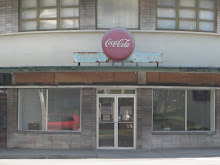
We went to go see the Oahu premiere of Fuel, a film directed by Josh Tickell about his life-long quest to reduce fossil-fuel use in America. Told in the style of a Michael Moore documentary, the film covers much territory that many are now well-familiar with: that the U.S. is creating 50% of the earth's green house gases while comprising only 5% of the population, that consumer demand for large cars in the U.S. has been largely manufactured by the auto industry, that the Iraq War was largely manufactured by the likes of Cheney and Wolfowitz to secure oil interests abroad, that as a planet we are quickly reaching peak oil, that the increased carbon dioxide in the atmosphere is melting our polar ice caps, yada yada.
To this, Tickell adds his own personal story about growing up in the beautiful wilderness of Australia only to move back to his mother's hometown in Louisiana with its polluted streams and toxic sites that were a byproduct of the oil refineries there. As a young adult, Tickell toured the country in his "Veggie Van", a van fueled completely by vegetable oil and over the years has worked tirelessly to spread the word on the wonders of biodiesel.
It is not until mid-way through that the film addresses the media backlash against biodiesel, which hit the newsstands last summer. The argument went that the production of biodiesel causes deforestation, increases food prices, and uses fossil fuels anyway, so what was the point. The film makes the argument that gallon for gallon, biodiesel still uses less energy than regular old oil, so despite all its deficiencies is still a better alternative. Sadly, it was only in the Q & A with Tickell and his fiancé after the showing that he mentioned that the source for this media firestorm was a PR firm that was funded by a petroleum company. Why this detail didn't make it into the film I'm not sure.
At the heart of the film was Tickell's love for diesel and biodiesel as an alternative to petroleum gasoline. And I think the film might've been stronger if it had focused a little bit on this conceit. As it is, the film casts a very wide net, got a little boring toward the end with its endless list of "Things you can do NOW!" Apparently, everyone told him he should cut another 20 minutes and I have to say I'd agree.
Still, the tidbits on diesel and biodiesel make this film an important one, one that adds to the conversations started by other like-minded films including Why we Fight, The Corporation, Who killed the electric car?, and An Inconvenient Truth.
The film is currently slated to open nationwide in September. Hawaii is not currently on the roster of cities where the film will be opening.













No comments:
Post a Comment